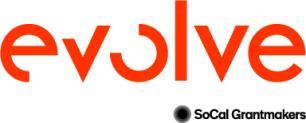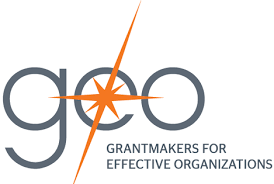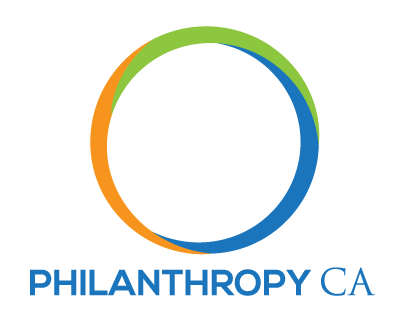Racism and the Economy: Understanding Racial Capitalism | 2024 Foundations of Racial Equity: Session 2
About Session 2
In this second session of the Foundations of Racial Equity Series, we explore racial capitalism, which describes the current economic system of extracting social and economic value from people of color. Racial capitalism is based on the theft, exclusion and exploitation of the land, labor, and capital of people of color. Philanthropy—as a social, political, and economic strategy of society’s wealthiest people, mostly white men, and institutions that “do good” while moving wealth without tax exposure— upholds racial capitalism.
The two modules of this session of Foundations of Racial Equity will explore the history of racial capitalism and philanthropy and feature funders that are exploring how to disrupt cycles of racial oppression in their grantmaking and ideas for creating liberation in our economy. These sessions will allow participants to engage with the material, reflect on their practice, and hear from peers about strategies and approaches they are initiating.
Join us to:
- Explore the foundations of racial capitalism, its historical roots, and current implications for people of color and antidotes to racial capitalism;
- Grapple with the role of philanthropy in upholding racial capitalism;
- Discuss approaches and practices in disrupting racial capitalism with philanthropic peers.
About the Series
- Session 1: The Cultural, Historical, and Political Foundation of Racism
- Session 3: Healing Justice: An Integral Approach to Advancing Racial Equity
- Session 4: Advancing Equity Through Organizational Culture and Operations
- Session 5: Leveraging ABFE's Three Core Tools For Racially Equitable Grantmaking
- Session 6: Awake to Woke to Work: A Framework for Racial Equity in Your Organization
Faculty
Jackie Allen
Jackie Allen
Jackie Statum Allen joined the Bush Foundation in 2018. As a Grantmaking Director, she supports a diverse portfolio of programs and grants. She co-led the initiative in which the Foundation granted $100M to seed two community trust funds to address racial wealth gaps in Black and Native American communities in the Bush Foundation region.
She has a bachelor's degree from Stanford University and an MBA from Northwestern University – Kellogg School of Management. Jackie is originally from St. Louis, Missouri, and currently lives in the Twin Cities, Minnesota with her husband and two daughters.
Jeremie Greer
Jeremie Greer
Jeremie Greer has dedicated his life and career to the advancement of racial and economic justice. Growing up in the historically Black Rondo Neighborhood, in St. Paul, Minnesota, he has always been attuned to the intersection between race and economics. He began his career in the Columbia Heights and Shaw neighborhoods in Washington, DC, organizing youth and tenants to fight back against the economic forces rapidly gentrifying that community. Working at the national level in the federal government’s premier policy agency, the Government Accountability Office (GAO), and at two national non-profits, the Local Initiative Support Corporation (LISC) and Prosperity Now (formerly CFED), he has become a national policy expert on the causes and the policy solutions to close the racial wealth gap. Jeremie has a Bachelor’s Degree in Social Work from the University of St. Thomas, a Master’s in Public Policy from George Mason University, and is currently working on an Executive Education Certificate in Nonprofit Leadership from Harvard University’s Kennedy School. Jeremie is also a Soros Equality Fellow.
Steve Hosik Moon
Steve Hosik Moon
Steve Hosik Moon (he/him) is the Director of Elgin Programs for Grand Victoria Foundation. He is also a Co-Chair of Philanthropy for Asian American Action Chicago (PAAAC) and has been a Board Member of Kuumba Lynx, a youth Hip Hop arts program. Most importantly, Steve and his partner are parents to a 6yo and caretakers for their elders, trying to figure out what it means to show up for movement in this moment as a fam.
Solana Rice
Solana Rice
Solana Rice was raised by a Black, Midwestern family that made tremendous emotional and physical sacrifices to get by. Dedicated autoworkers, food & retail workers, entrepreneurs; her family gifted Solana with a tremendous work ethic and a passion for making the world a better place for people of color. Solana is a dedicated advocate aiming to shape the most vibrant, inclusive, and sustainable economy this country has yet to see. Prior to starting Liberation in a Generation, Solana was Director of State & Local Policy at Prosperity Now where, under her leadership, she built strong advocacy partnerships with organizations in the field and advanced dozens of policies in nearly half the states in the nation. Prior to joining Prosperity Now, Solana served as a director for financial security initiatives at PolicyLink. Solana has a Master’s in City Planning from MIT, where she researched the integration of individual development accounts into community development services. She holds a B.A. in architecture from Washington University in St. Louis. Solana is also a Soros Equality Fellow.
Pui Ling Tam
Pui Ling Tam
Pui Ling Tam is responsible for community engagement, grantmaking, research, accountability, and learning in the Fund’s Economic Well-being program. This includes the Endeavor Fund, policy grantmaking, and supporting our youth grantmaking team, the BAY Fellows, in their leadership of Possibility grants. Reach out to Pui Ling if you seek assistance on the topic of nonprofit well-being (sometimes known as talent justice, wage equity, or quality, empowering jobs); or, the practice of youth- and community-led grantmaking.
Pui Ling is a long-time school- and community-based educator, youth development practitioner, and former executive director of a fiscally sponsored nonprofit. She brings her experiences as a working mother and public school parent to her work; she is well-versed on youth voice on multiple awesome fronts.
She is inspired to work at the Fund because it aims learn, to collaborate, and to shift power in meaningful ways.


